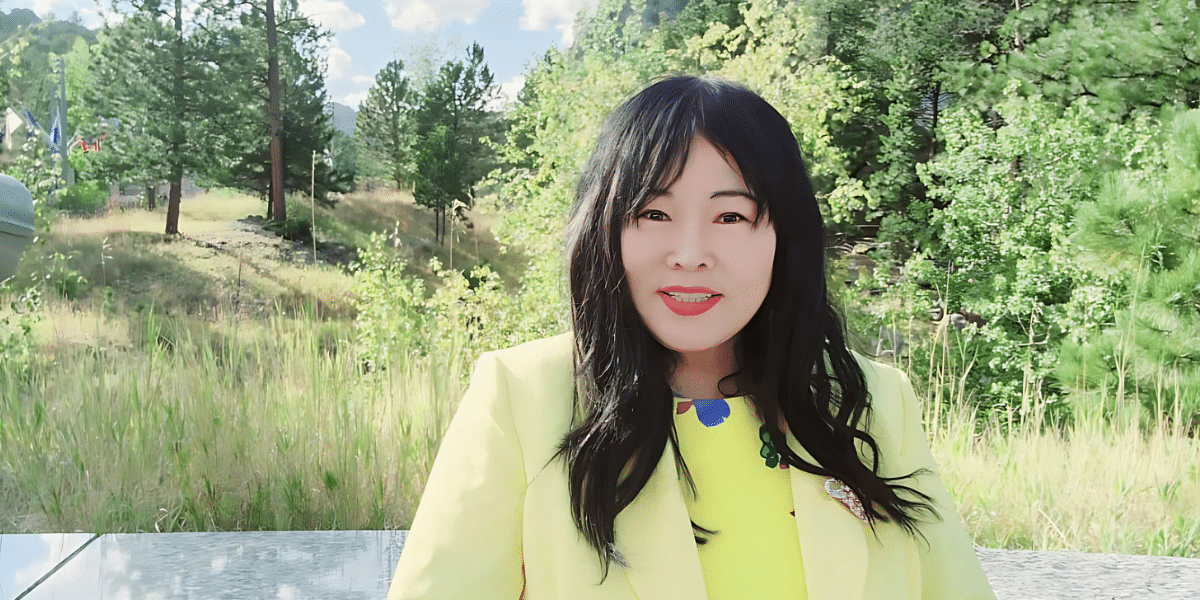Elon Musk’s journey from a curious child in Pretoria, South Africa, to a world-renowned entrepreneur began in an environment far from Silicon Valley’s boardrooms. As chronicled in Chapter 2 of “Billionaire Blueprint: Journeys of the 50 Wealthiest of 2024,” Musk’s early years were marked by a combination of challenges, intellectual curiosity, and resilience—qualities that would lay the groundwork for his future innovations in technology, energy, and space exploration. This article explores Musk’s formative years, highlighting how his difficult upbringing, passion for learning, and early exposure to technology shaped him into the visionary leader he is today.
A Childhood of Curiosity and Challenges
Elon Musk was born in 1971 in Pretoria, South Africa, to parents Maye and Errol Musk. His parents divorced when he was nine years old, and Musk primarily lived with his father—a relationship that Musk has since described as tumultuous. In interviews, Musk has spoken about his father’s difficult personality, even calling him “a terrible human being” due to their strained relationship. The emotional toll of his home life was compounded by bullying at school, where Musk often felt isolated from his peers.
Yet, these hardships also instilled in Musk a sense of resilience that would serve him well in his later life. He learned to cope with adversity, often retreating into books as a form of escape and solace. Musk’s love for reading introduced him to various subjects, from science fiction to philosophy, and exposed him to ideas far beyond his immediate environment. This early habit of seeking knowledge became one of Musk’s defining traits, and it offered him a window into a world of possibilities that went beyond his challenging circumstances.
One of Musk’s favorite books during his childhood was The Hitchhiker’s Guide to the Galaxy by Douglas Adams. The book’s emphasis on asking the right questions and thinking critically left a profound impact on him. Musk later credited the book with teaching him the importance of challenging conventional beliefs and searching for deeper truths—a philosophy that would guide his approach to problem-solving throughout his career.
Early Fascination with Technology: Learning to Program
At age 10, Musk’s intellectual curiosity led him to an interest that would change his life: computer programming. He taught himself programming on a Commodore VIC-20, a basic home computer that allowed him to explore coding. Unlike many of his peers, Musk was not content with simply using the computer; he wanted to understand how it worked and learn how to create his own programs.
This self-directed learning proved to be transformative. By age 12, Musk had created a basic video game called Blastar, which he sold to a local magazine for around $500. The game was a simple space-themed shooter, but its creation showcased Musk’s early talent for technology and his entrepreneurial spirit. Musk’s experience with Blastar foreshadowed his future as an innovator who would push the boundaries of what technology could achieve.
Musk’s programming skills also gave him a sense of agency and control over his environment, helping him cope with the challenges of his personal life. Through technology, he discovered a world where he could shape outcomes, solve problems, and express his creativity—elements that would become central to his work in later years. His early programming achievements taught him that technology could be a powerful tool for transformation, a realization that would drive his career as a tech entrepreneur.
Moving to Canada: A New Chapter and Opportunities
At the age of 17, Musk decided to leave South Africa in pursuit of new opportunities. He moved to Canada, enrolling at Queen’s University in Kingston, Ontario. This move marked the beginning of Musk’s international journey and was motivated, in part, by his desire to eventually reach the United States, where he believed he could make a more significant impact in technology and business.
Canada provided Musk with a fresh start and access to a more diverse academic and social environment. Studying at Queen’s University allowed Musk to broaden his horizons, interact with students from various backgrounds, and immerse himself in a culture that encouraged ambition and innovation. During his time at Queen’s, Musk met Justine Wilson, who would later become his first wife, and developed relationships that would shape his personal and professional life.
After two years at Queen’s, Musk transferred to the University of Pennsylvania, where he pursued dual degrees in physics and economics. These fields would equip him with a unique combination of technical and business knowledge, laying the foundation for his future endeavors. His studies in physics fostered his analytical and problem-solving skills, while his economics degree helped him understand the principles of market dynamics, finance, and entrepreneurship. This combination of disciplines gave Musk the tools to think holistically about complex challenges, a skill that would prove invaluable as he entered the world of technology and innovation.
Discovering First Principles Thinking: Challenging the Status Quo
While at the University of Pennsylvania, Musk developed a problem-solving approach known as first principles thinking—a method that involves breaking down complex issues into their most basic components and building solutions from the ground up. This approach, inspired by his physics training, allowed Musk to see beyond conventional assumptions and find innovative solutions that others might overlook.
First principles thinking became one of Musk’s most valuable tools as he pursued ambitious projects. For example, when Musk later began working on Tesla, he used first principles to rethink the design and production of electric vehicles. Instead of accepting high battery costs as a given, he broke down the components of a battery to identify ways to reduce expenses, ultimately making Tesla’s EVs more affordable. Musk’s application of first principles thinking highlights his willingness to challenge traditional industry standards and question accepted beliefs, a mindset that has been instrumental in his success.

This analytical approach taught Musk that innovation often requires looking beyond established frameworks. By focusing on first principles, Musk was able to approach problems with a fresh perspective, unlocking creative solutions that reshaped industries from automotive to aerospace.
Early Entrepreneurship: The Zip2 and X.com Ventures
Musk’s academic journey at the University of Pennsylvania was only the beginning. After graduating, he moved to Silicon Valley, where he immersed himself in the technology startup scene. His first major entrepreneurial venture was Zip2, a software company he co-founded with his brother, Kimbal Musk. Zip2 provided online business directories and maps, catering primarily to media companies looking to offer digital services.
Zip2 was an early success, and in 1999, it was acquired by Compaq for nearly $300 million. Musk’s earnings from this sale allowed him to fund his next venture, X.com, an online payment company that later became PayPal. X.com was founded on Musk’s belief that the internet could revolutionize financial services by making transactions faster and more accessible.
X.com quickly grew in popularity, eventually merging with Confinity to form PayPal. The company became a leader in online payments, and in 2002, eBay acquired PayPal for $1.5 billion. The sale provided Musk with the capital to pursue larger, more ambitious projects, marking a turning point in his career. His experiences with Zip2 and X.com taught him the importance of taking risks, iterating quickly, and leveraging technology to disrupt traditional industries.
Lifelong Learning: Musk’s Commitment to Education and Curiosity
Musk’s early life demonstrates his commitment to lifelong learning, a value that continues to define his approach to innovation. Even after achieving financial success, Musk remained a student of new ideas, technologies, and scientific advancements. He frequently immersed himself in fields ranging from rocket science to artificial intelligence, often studying alongside experts to deepen his knowledge and guide his companies.
For Musk, education is not limited to formal institutions; it’s a continuous pursuit of knowledge. This mindset has allowed him to lead groundbreaking companies like Tesla, SpaceX, and Neuralink, where he has applied his technical expertise and strategic vision to tackle complex challenges. Musk’s commitment to self-education highlights the importance of curiosity, adaptability, and a willingness to challenge the status quo, qualities that aspiring entrepreneurs can adopt to fuel their own journeys.
Lessons from Musk’s Early Life: Resilience, Curiosity, and Vision
Elon Musk’s early life and education reveal key qualities that have defined his success as an entrepreneur. His resilience in the face of adversity taught him to persist despite obstacles, while his curiosity and dedication to learning gave him the skills needed to drive innovation. Musk’s journey illustrates the power of intellectual curiosity to transcend difficult circumstances and the importance of viewing challenges as opportunities.
For entrepreneurs, Musk’s story serves as a reminder that success is often built on a foundation of lifelong learning and resilience. His early experiences underscore the value of asking questions, pursuing knowledge, and developing a mindset that embraces change. By following Musk’s example, aspiring leaders can cultivate the intellectual and emotional tools needed to pursue ambitious goals and make a meaningful impact.
Conclusion: The Foundations of a Visionary Leader
Elon Musk’s early life in South Africa, coupled with his academic journey and entrepreneurial beginnings, laid the groundwork for his future achievements. His relentless curiosity, commitment to first principles thinking, and resilience in the face of adversity have shaped him into one of the most influential innovators of our time.
For those interested in exploring Dr. Sarah Sun Liew’s insights on resilience, innovation, and strategic thinking:

Visit her author profile at wikitia.com/wiki/Dr._Sarah_Sun_Liew
Contact her directly at (424) 343 7025 or (424) 777 6461.
Email her at Mgroupbh7@gmail.com for guidance on building a foundation for impactful leadership.
Musk’s story is a testament to the transformative power of curiosity and resilience, showing that even the most challenging beginnings can lead to groundbreaking success. Through education, self-discovery, and unwavering commitment, Musk has not only built successful companies but has also inspired a generation to dream bigger and aim higher.
Published by: Holy Minoza










